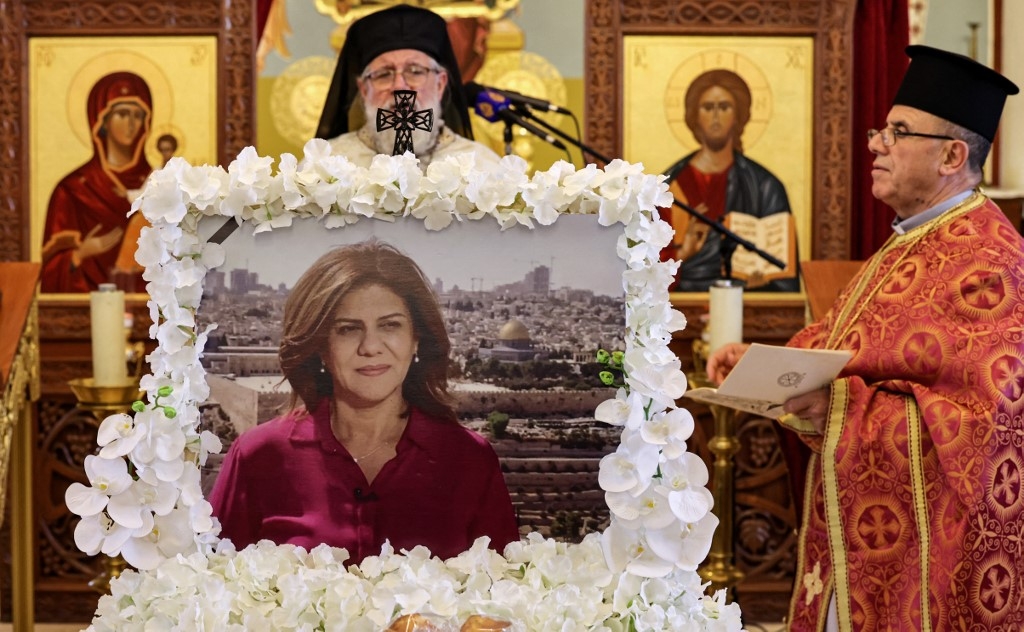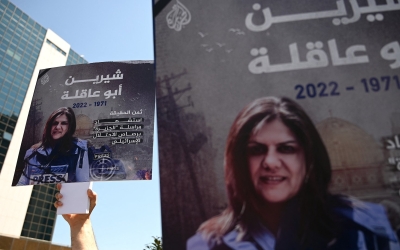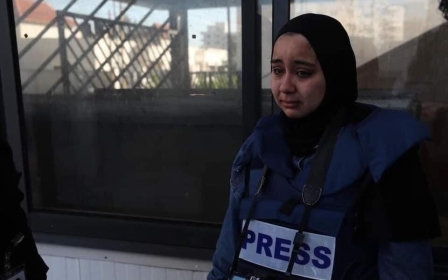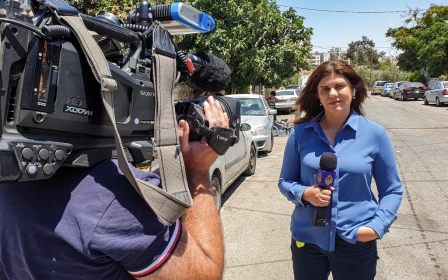Shireen Abu Akleh: Lawyers request bullet be examined by independent expert

British lawyers on Wednesday said they have requested access to the bullet and firearm that killed the Al Jazeera Palestinian journalist Shireen Abu Akleh in May.
In a statement sent to Middle East Eye, lawyers from leading London law firm Bindmans LLP and Doughty Street Chambers, who are acting on behalf of Abu Akleh's family, said they have sent the request to the Palestinian Authority (PA) and the Israeli army.
'The forensic analysis of the firearm forms a small but important part of the evidence in this case'
- Tayab Ali, Bindmans LLP
They have also requested the PA, Israeli army and the US embassy in London to provide access to their respective investigations, evidence and findings, including a copy of the recent forensic ballistic analysis conducted on the bullet referred to in the US State Department’s press statement of 4 July.
The lawyers have also requested the opportunity to interview the soldiers that the Israeli army has identified as having been present during the shooting.
Abu Akleh, a veteran Palestinian-American journalist for Al Jazeera Arabic, was killed on 11 May while covering an Israeli military raid in the Palestinian city of Jenin in the occupied West Bank. Her death sparked Palestinian outrage and widespread international condemnation. Her colleague Ali al-Samoudi was also shot and wounded in the same attack.
"The forensic analysis of the firearm forms a small but important part of the evidence in this case. It is crucial that we, as the lawyers representing the victims in this case, are able to independently assess the evidence and are not prevented or hampered in our investigations," said Tayab Ali, partner at Bindmans.
"The evidence that we have seen so far provides a strong case that Israel has a policy of targeting journalists in the Occupied Palestinian Territory. Evidence is mounting that the killing of Shireen and shooting of Ali was part of that purposeful policy."
Shot by Israeli snipers
Multiple eyewitnesses, including Middle East Eye contributor Shatha Hanaysha, said the 51-year-old journalist was shot dead by Israeli snipers while reporting on the raid.
Investigations by the PA and the United Nations, as well as several journalistic probes, also found that the shot that killed Abu Akleh was fired by Israeli forces.
The PA on Saturday handed over the bullet that killed Abu Akleh to US authorities for forensic examination.
On Monday, the US Security Coordinator for Israel and the Palestinian Authority (USSC) said that gunfire from the positions of Israeli forces was likely responsible for the death of Shireen Abu Akleh but there was no definitive conclusion on the origin of the bullet.
The assessment, which found no reason to believe the killing was intentional, was based on investigations by both Israel and the PA.
The USSC statement said that independent third-party examiners could not reach a definitive conclusion regarding the origin of the bullet that killed the journalist despite an "extremely detailed forensic analysis".
Israel said on Monday that its own forensic investigation could not determine from which weapon the bullet was fired.
"The physical condition of the bullet and the quality of the characteristics on it do not enable a ballistic examination to conclusively determine whether or not the bullet was fired from the weapon which was examined," the Israeli army said.
Rights groups have said that it's unlikely Israel would conduct a proper investigation into the killing, adding that the country has a poor record of probing the conduct of its forces in relation to the deaths of Palestinians.
Legal paths for justice
In the early aftermath of the killing, legal experts told MEE that there were a number of legal mechanisms that Abu Akleh's family could use in order to seek justice, given the journalist's American citizenship.
Her family said in its statement that it would continue to advocate for justice, hold Israel accountable, and call on the US to conduct its own probe into the killing.
Al Jazeera has already referred the case to the International Criminal Court in the Hague and vowed to bring the killers to justice through all international legal platforms.
Middle East Eye propose une couverture et une analyse indépendantes et incomparables du Moyen-Orient, de l’Afrique du Nord et d’autres régions du monde. Pour en savoir plus sur la reprise de ce contenu et les frais qui s’appliquent, veuillez remplir ce formulaire [en anglais]. Pour en savoir plus sur MEE, cliquez ici [en anglais].





